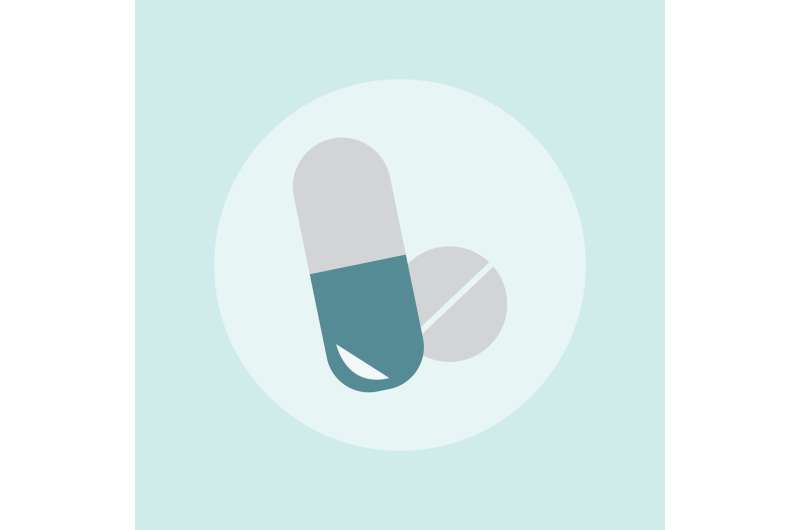This article has been reviewed according to Science X's editorial process and policies. Editors have highlighted the following attributes while ensuring the content's credibility:
fact-checked
proofread
The future is bright for gold-based antibiotics

New research being presented at this year's European Congress of Clinical Microbiology & Infectious Diseases (ECCMID) in Copenhagen, Denmark, (April 15-18) has identified several gold-based compounds with the potential to treat multidrug-resistant "superbugs."
With all 19 compounds tested effective against at least one hard-to-treat bacterium and some effective against several, the Spanish researchers say that the gold-based drugs hold great potential as new antibiotics.
Drug-resistant infections kill an estimated 700,000 people a year globally and, with the figure projected to rise to 10 million by 2050 if no action is taken, the World Health Organization (WHO) classes antibiotic resistance as one of the greatest public health threats facing humanity.
However, the development of new antibiotics has stalled and the few new antibiotics that are developed are mainly derivatives of existing treatments.
Gold is known to have antibacterial properties, making gold metalloantibiotics—compounds with a gold ion at their core—an exciting potential new approach.
To find out more, Dr. Sara M. Soto González, of the Barcelona Institute for Global Health, Barcelona, Spain, and colleagues studied the activity of 19 gold complexes against a range of multidrug-resistant bacteria isolated from patients.
The complexes all belong to the same family but have slightly different structures.
The six bacteria studied were: Methicillin-resistant Staphylococcus aureus (MRSA, which causes skin and other infections), Staphylococcus epidermidis (which can cause catheter-associated infections), Pseudomonas aeruginosa (which causes infections including pneumonia), Stenotrophomonas maltophilia (pneumonia and other infections), Acinetobacter baumannii (blood and urinary tract infections and pneumonia) and Escherichia coli (blood and urinary tract infections and pneumonia).
All of the strains studied were multidrug-resistant. Four (S. aureus, P. aeruginosa, A. baumannii and E. coli) are on the World Health Organization's list of antibiotic resistant 'priority pathogens'—meaning they are among the bacteria judged to pose the greatest risk to human health. Multidrug-resistant S. maltophilia is increasingly being found in the lungs of people with cystic fibrosis.
In tests, 16/19 (84%) of the gold complexes were highly effective against MRSA and S. epidermis.
Another 16 of the complexes were effective against the other bacteria, all of which are gram negative. Gram negative bacteria have greater inbuilt resistance to antibiotics and the need for new treatments is particularly pressing.
Gold complexes use a variety of techniques to kill bacteria. They stop enzymes from working, disrupt the function of the bacterial membrane and damage DNA. Crucially, this multimodal mechanism should prevent antimicrobial resistance from developing.
Dr. Soto González concludes, "All of the gold compounds were effective against at least one of the bacterial species studied and some displayed potent activity against several multidrug-resistant bacteria."
"It is particularly exciting to see that some of the gold complexes were effective against MRSA and multidrug-resistant A. baumannii, as there are two biggest causes of hospital-acquired infections."
"The type of gold complexes we studied, known as gold (III) complexes, are relatively straightforward and inexpensive to make. They can also be easily modified and so provide a vast amount of scope for drug development."
"With research on other types of gold metalloantibiotics also providing promising results, the future is bright for gold-based antibiotics."
More information: Conference: www.eccmid.org/
Provided by European Society of Clinical Microbiology and Infectious Diseases


















